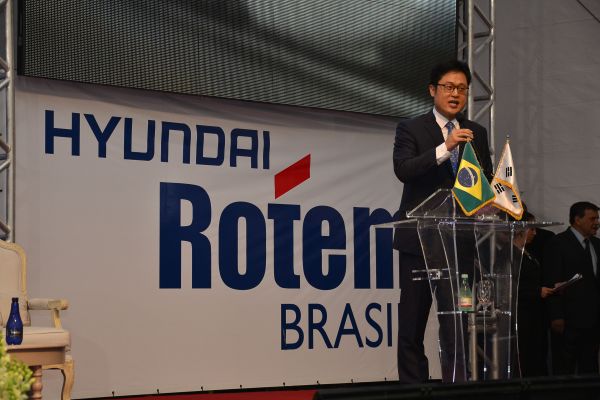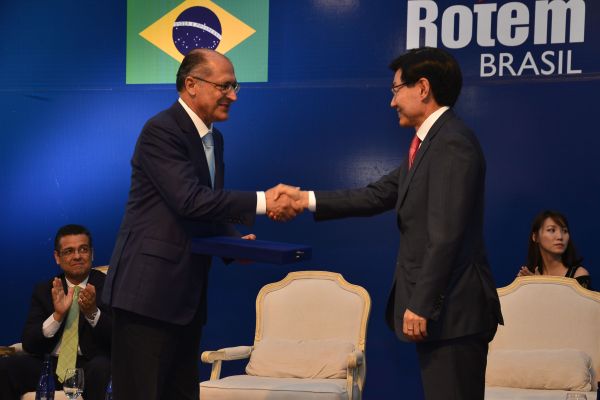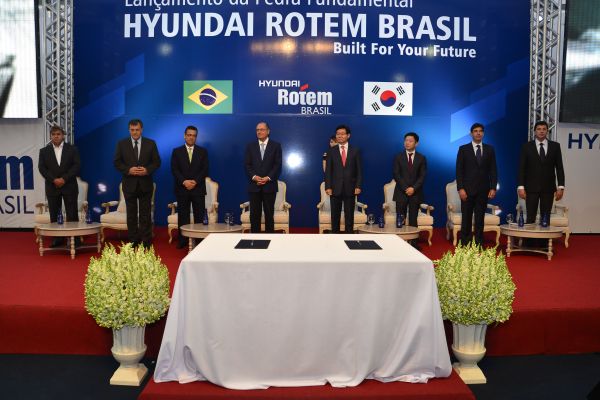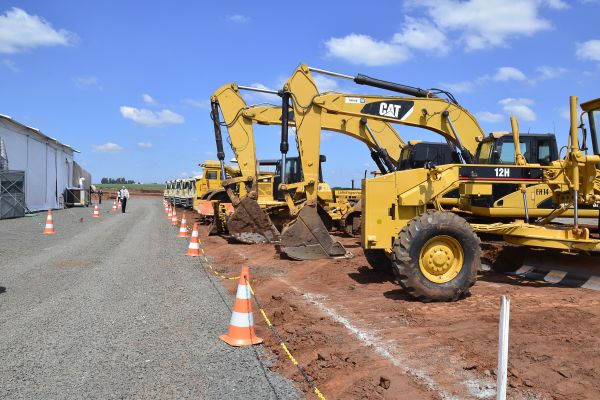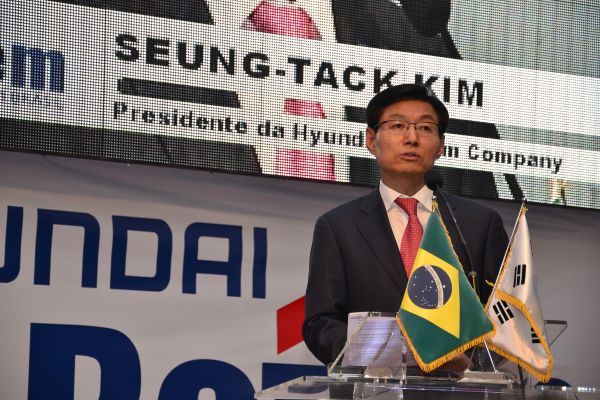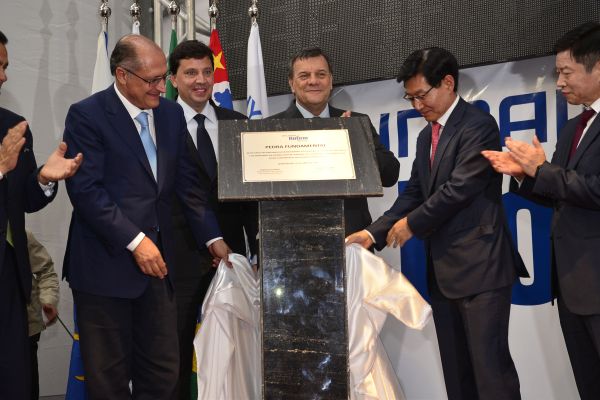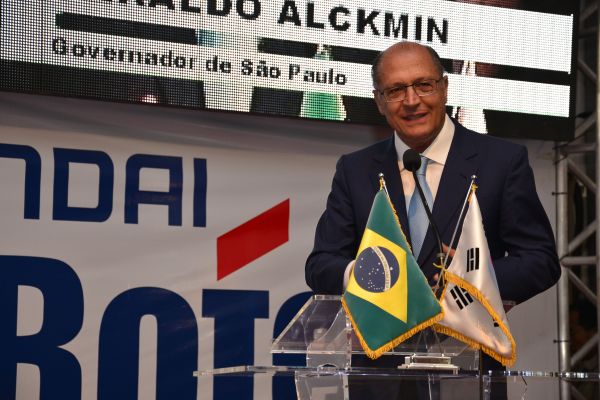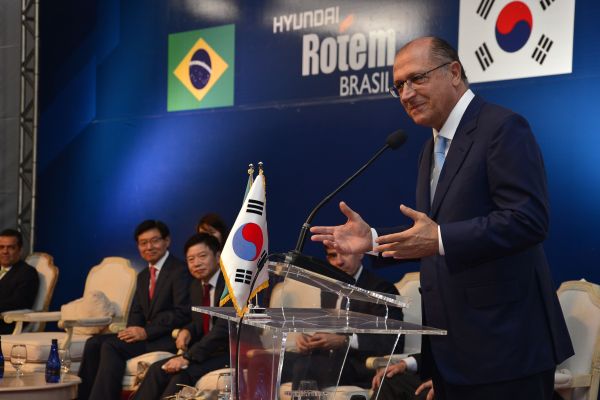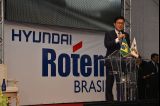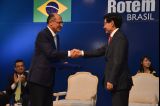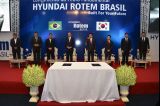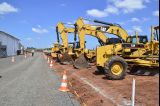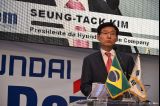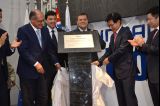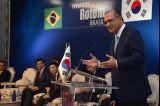Hyundai Rotem lays factory cornerstone in Araraquara
This will be the company's first plant in Brazil and the second largest plant of its global operation; Project receives support from Investe São Paulo
Investe São PauloOn April 2, Governor Geraldo Alckmin attended the groundbreaking ceremony of Hyundai Rotem's new plant in Araraquara. The company, which is one of the largest manufacturers of railway systems in the world, relied on the support from Investe São Paulo, an investment promotion agency linked to the State Department of Economic Development, Science, Technology and Innovation, to invest US$ 40 million (about R$ 99 million) in the venture.
This will be the company's first plant in Brazil and the second largest plant of its global operation, with 300 employees. Production should start in the first half of 2016, when 240 cars should be delivered to Companhia Paulista de Trens Metropolitanos (CPTM) and 112 cars to Metrô Bahia in Salvador. For this, the plant's construction works must end by the end of 2015.
"We visited several cities and dozens of sites along with South Korean businessmen and we are doing everything possible to expedite all licenses and meetings with government entities. which will be essential to project success", said the president of Investe São Paulo, Juan Quirós.
During the groundbreaking ceremony, Governor Geraldo Alckmin also outlined the state's commitment to the development of São Paulo's rail network: "We are investing to expand the tracks for passenger transport in 132 km, adding up Subway, Trains and LRT. In addition, trains will be manufactured here with cutting edge technology and comfort, equipping consists that convey the people of São Paulo ".
While the new plant is being built, Hyundai Rotem will assemble the trains ordered by São Paulo and Salvador in a leased plant located in Araraquara.
The global president of the South Korean company, Seung-Tack Kim, said: "Hyundai Rotem believes that it will help the city of Araraquara become a large railway production center in Brazil", Moreover, the CEO of Hyundai Rotem in Brazil, André Han, also stressed the commitment to the market, noting that, in addition to meeting the demand in São Paulo and Brazil, the company should export to the entire South America. The idea is to manufacture 200 cars a year, closing new contracts.
"We are talking to the three government offices so that the installation of our plant can be the first step in the transformation of Araraquara into a railway hub", said Han in a ceremony to announce the investment, held at Palácio dos Bandeirantes. The development will also house the company's headquarters in Brazil.
The executive explained that the city was chosen as it already houses other companies of the rail sector, such as Iesa and Randon's future plant, as well as other industry vendors that should arrive there in the coming years. In addition, the city is considered a meeting point where all kinds of gauges and rails are crossing, making it logistically strategic. "We also prioritize the State of São Paulo, which has a greater potential for rail projects and superior market perspective", he explains.
For the mayor Marcelo Barbieri, the installation of the South Korean company will allow Araraquara to take a greater leap in the population's quality of life by adding new values to the municipality, such as more jobs and income and further increasing VAT refinancing, via the State.
"The installation of Hyundai Rotem puts Araraquara in the forefront to reclaiming the rail services in Brazil and may transform the city into a subway-railroad hub", emphasized Marcelo, also mentioning Randon, a company that manufactures train cars and sugarcane semi-trailers, which will begin operations in 2016.
Hyundai Rotem trains already circulating in the train lines of São Paulo, Salvador and Rio de Janeiro, were assembled and imported from South Korea. The new plant will also bring a new technology, which is not yet in Brazilian factories: driverless trains, which will be provided to Metrô Bahia.
The company has acquired a plot of 150 square meters to build its new plant. Even after completing its new venture, Hyundai Rotem wants to keep the leased shed as a factory to support its main plant.
About Hyundai Rotem
Founded in 1977 by a joint venture between Hyundai Precision Industry companies, Hanjin Heavy Industries & Construction and Daewoo Heavy Industries & Machinery, Hyundai Rotem was purchased by the Hyundai Motor Group in 2001, becoming a global reference in the supply of railway systems in a short time. Further ahead, the company also entered the heavy industry field, becoming the sole producer of tanks in South Korea.
Headquartered in Seoul, Hyundai Rotem is currently a joint-stock company, traded on the Korean stock market, and operates with not only rail systems, but also military defense, industrial engineering and industrial machinery. Its revenue was US$ 31.56 million in 2013. Altogether, there are four domestic companies in addition to its factories, sales centers and offices in 18 countries.

